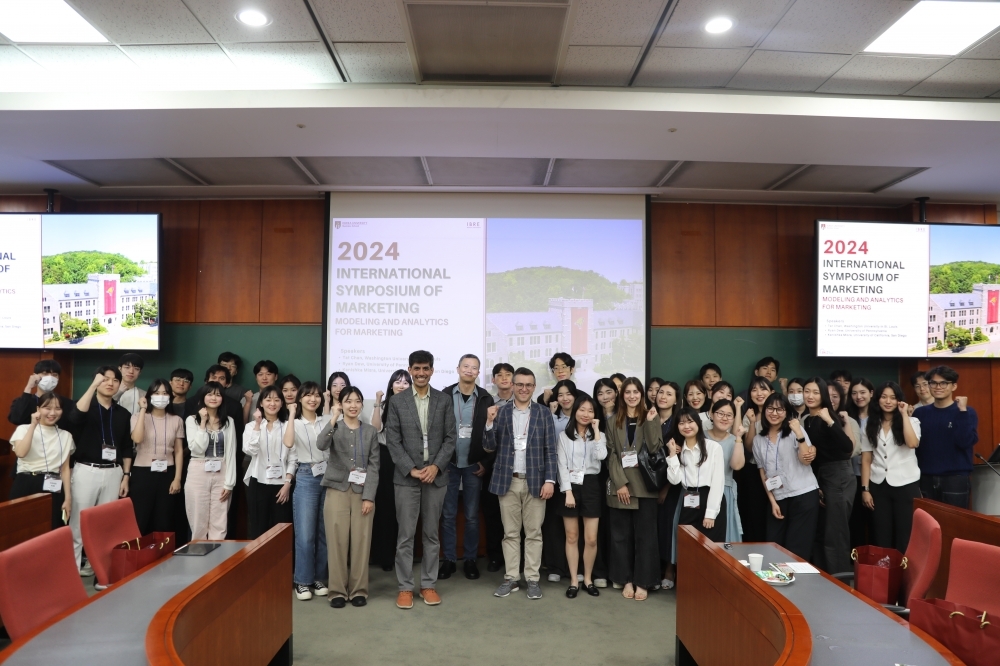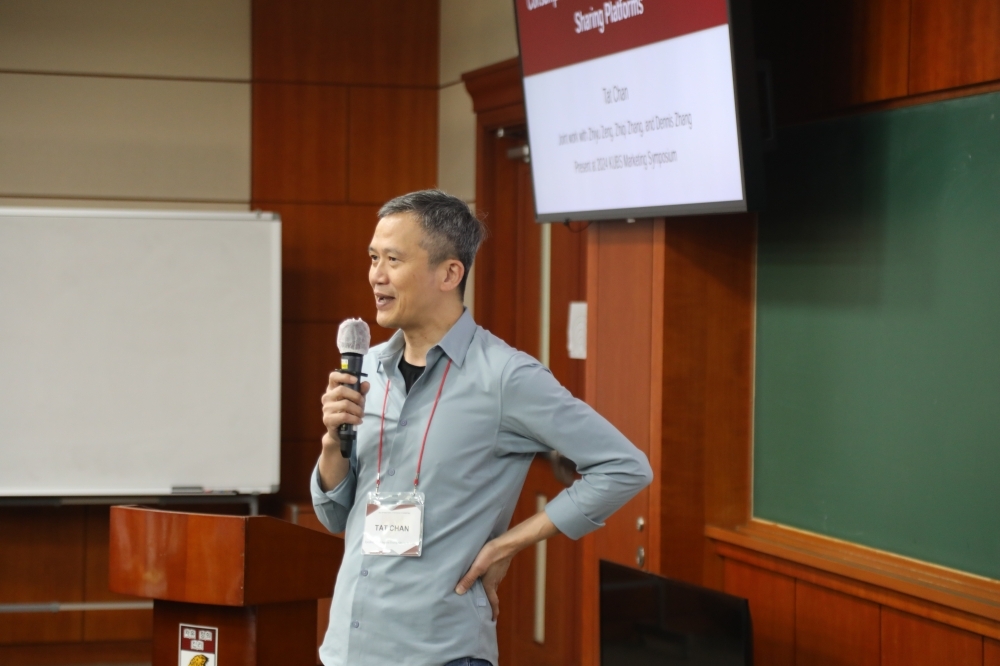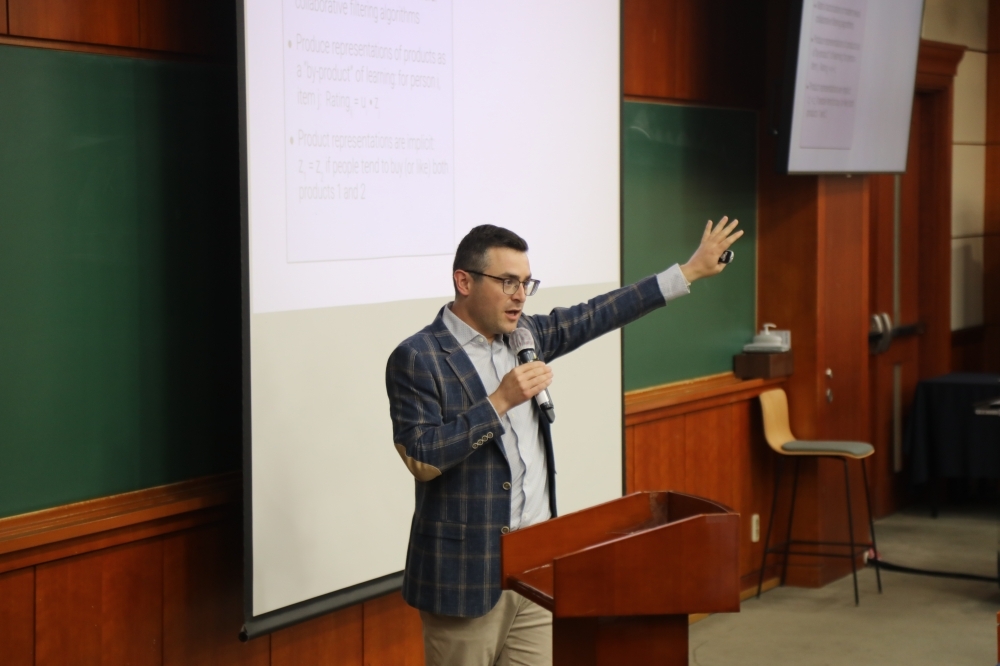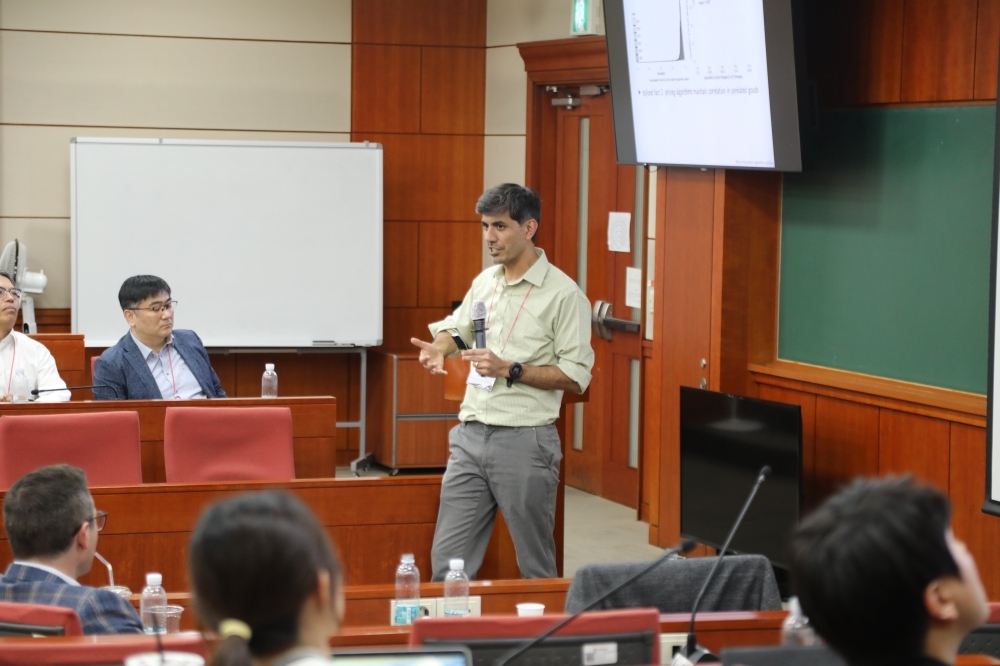News
KUBS News
KUBS International Symposium of Marketing 2024 with International Scholars
2024.06.25 Views 2356 국제실
KUBS International Symposium of Marketing 2024 with International Scholars
On May 24th, KUBS International Symposium of Marketing (hereinafter Marketing Symposium) was held in Room 432 of LG-POSCO Hall. Marketing Symposium began in 2005 as part of the celebrations for Korea University’s 100th anniversary and has been conducted every year since then, featuring presentations and discussions with international scholars. This year’s speakers were Professor Tat Chan from Washington University in St. Louis, Professor Ryan Dew from Pennsylvania University, and Professor Kanishka Misra from University of California, San Diego.

Professor Tat Chan gave a presentation on the topic “The Impact of Recommendations on Consumption and Creation on Online Content Sharing Platforms.” Professor Chan explained that online content sharing platforms like Tik Tok and Facebook rely heavily on advanced algorithms to recommend user-generated content (UGC) to users. The contents recommended by these algorithms significantly impacts users’ consumption, and these recommendations provide insights into the works of other content creators, generating peer effects that also influence users’ motivation to create content.
He shared the results of a randomized field experiment conducted on one of the world’s largest online video-sharing platforms to study the impact of recommendations on both consumption and production. This experiment manipulated the popularity of videos recommended with lower popularity (measured by the number of followers of the creator), their video viewing time decreased.
Through this, he emphasized that if both content consumption and production are important factors for the platform, recommending videos with high popularity is not always the optimal strategy. Instead, it is necessary to adjust the algorithm to recommend videos with varying levels of popularity based on individual users’ consumption and production preferences.

Next, Professor Ryan Dew gave a presentation on “Adaptive Preference Measurement Using Unstructured Data.” Professor Dew explained that unstructured data, which describes products using photos and text rather than a standardized set of attributes, is commonly found in e-commerce. He introduced a frame work for a real-time adaptive survey design that uses Bayesian optimization to measure preferences for unstructured data.
He further explained that this approach operates based on the embedding of unstructured data, eliminating the need to manually code product attributes. It can be effectively used to measure preferences for clothing and can be applied to both general marketing tasks and specific tasks such as designing customer onboarding surveys to mitigate cold start recommendation issues. Therefore, it allows for the reconstruction of consumer evaluations of discrete attributes, even for attributes that could not be considered or used a priori.

Lastly, Professor Kanishka Misra from University of California, San Diego, presented on "Algorithmic Collusion with Multi-Product Firms." Professor Misra highlighted that retail businesses are increasingly adopting AI-based automated pricing algorithms for price determination. These algorithms provide scalability and ease of implementation, incorporating automated price discovery capabilities through real-time experimentation.
However, according to recent theoretical and empirical research, there is a possibility of generating anti-competitive outcomes, raising policy concerns. It has been pointed out that simulation experiments have revealed that these algorithms often lead to equilibria that are less competitive (below Nash equilibrium).
In contrast, companies using uniform markups across their products can achieve competitive equilibrium prices. We introduced that if a company's products exhibit demand independence, a constant markup model can support strategies similar to multiple market contact. Therefore, this study improves the understanding of potential algorithm collusion and provides policymakers with insights into which algorithms can lead to competitive pricing.

After the paper presentation sessions concluded, a free-form comprehensive discussion ensued between international scholars and the audience. Various questions and issues regarding marketing and consumer behavior research were raised, and international scholars generously shared their experiences, insights, and advice.


